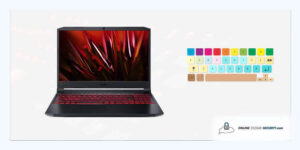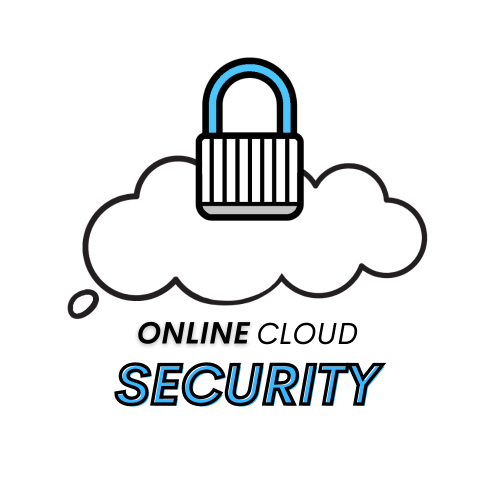

Dave Miller – Tech Enthusiast & Security Expert – November 18th, 2021

According to the FBI, the rise in consumer use of websites and mobile apps for banking transactions creates a major target for hackers. However, while banks and other financial institutions invest massive resources to protect their client and their data, software engineers and techies are also coming up with Virtual Private Networks (VPNs) to help internet users stay safe.
Generally, VPNs are used to mask your IP addresses and help you stay anonymous. However, as with any other software or technology, users have concerns and reservations, such as safety. Is it safe to use a VPN for banking? Read below to discover the benefits of using VPN generally and specifically for banking.
As previously noted, VPN is an acronym for Virtual Private Network. A VPN is an online tool that masks and recreates the security of your physical network. With a VPN, all outgoing data is highly encrypted, which increases your safety. By encrypting your data, no third party can track or decipher your data.
A VPN is considered an essential defense tool against hackers, spies, and data thieves. When using a public WiFi network, it is advisable to use a VPN to reduce potential attacks and hacks. Additionally, you can also use a VPN on your private home network for additional security when dealing with crucial information and processes such as banking.
When banking online, a VPN can mask your bank details, transactions, and passwords. By encrypting your data, a VPN ensures that no one can access your traffic, not even your Internet Service Provider (ISP).
The VPN encrypts your data before leaving your browser or device and links to the internet. The data is then temporarily stored in a Virtual Private Network server where, upon your discretion, it changes your IP address. The data then goes back to your bank’s website or your online destination. Consequently, the data recipient cannot pinpoint the exact origin of the data.
Yes, a VPN is safe for online banking. Using a VPN does not compromise sensitive information. Whether you are banking online using a public or private WiFi network, a VPN makes the whole process safer. VPNs and several government institutions use 256-bit encryption, which is almost impossible to crack. Encryption is what powers VPNs entirely, making them virtually hard to decrypt.
Ideally, any third party trying to access your data before it goes to these VPN servers will be accessing useless codes. As such, VPNs are ideal for storing all your sensitive bank details without worrying about potential compromise.
More importantly, a VPN protects our banking from unforeseen self-imposed challenges, such as getting your account blocked upon crossing borders. You can use a VPN that is connected to your home country. As such, your bank won’t know of your across-border locations, keeping your account from the risk of a lockdown.
However, a VPN is not always safe to use when banking. Read further to understand when you should and should not use a VPN for banking.
Every banking detail is undoubtedly sensitive. Whether you are accessing your savings, your clients’ payments or employees’ pays, a less secure bank account leaves a chance for a potential hack or disaster. Third-party individuals can access even the most secure bank accounts without a VPN.
Fortunately, some VPN providers provided additional features such as no-logs policies. This means that even the VPN service provider is not at liberty to save or monitor your online activity, data, and browsing activity. Generally, your choice of having a VPN depends on how sensitive you believe your banking data and transactions are.
Public WiFi networks are filled with hackers and spies, preying on unsuspecting internet users, especially online banking users. Using a public WiFi network is highly risky, especially if it is not password-protected.
A password-unprotected public WiFi network does not pose a challenge for hackers and third-party tracking software. This ultimately exposes your sensitive bank details and transactions to potential hacks. Fortunately, your device, browser activity, and banking transactions become virtually impenetrable with a VPN network, especially if you share WiFi networks with hackers.
Mobile phones are typically harder to hack and attack, unlike computers. Additionally, individuals currently prefer the convenience of being able to transfer funds on the go. Unfortunately, while mobile phones are considered safer than computers, they are still vulnerable to getting hacked.
A VPN provides the same benefits as on a computer. Fortunately, different VPN providers allow you to use your account on more than one device. Therefore, you are protected whether you are banking on your computer, tablet, or mobile phone.
As previously mentioned, some banks take extra precautions for accounts that log usage across the designated borders. However, while this is a commendable safety plan, it may inconvenience you in another country, especially since you will want to access funds from a possibly blocked bank account. With a VPN, you can connect your internet usage to your home country to avoid raising suspicion.
Most VPN providers have the option of setting up free or premium account usage. Unfortunately, free VPNs have limitations and lack the same features as premium VPNs. Free VPNs may come with third-party ads that track and store your data and then transfer them to third parties.
Moreover, free VPNs have limited features and are susceptible to IP leaks. Free VPNs also serve a lot of internet users, and your internet usage may be slower. While free VPNs are still viable options for internet security, it is advisable to avoid using them when banking.
Banks typically require account users to notify them beforehand if they wish to travel out of the country. If you don’t have the time for such formalities, you can consider setting up a VPN and connecting it to your home country.
Unfortunately, using a VPN can limit your online banking activities if you will keep changing the location settings. You will most likely make your bake even more suspicious and may not approve transfers of payments. Use a VPN only if you are sticking to your home country as the central IP address on your VPN.
While a VPN is a safe tool to guarantee online safety, it is essential to exercise other preventive measures such as updating your operating system or antivirus. Having an all-around secure system works together with a Virtual Private network to ensure even safer internet usage.
Here are ways that a VPN can help improve and protect your banking experience:
Generally, while using a VPN keeps your internet usage private, it does not secure 100% from hacks. Practicing good Internet safety habits helps you stay safe, whether you use a VPN or not. One of these safe practices that reduce the chances of hacks and attacks is having a secure password. Hackers and spies rely on weak passwords to access your digital devices.
Whether you have a VPN or not, below are steps you can take to keep your banking activities safer:
A VPN is the best safety tool you can use to ensure safety when banking online. It masks and protects your data from hackers and unlicensed third parties. A VPN is ideal when using public WiFi networks or if you are accessing sensitive data.
On the other hand, it is also not advisable under different circumstances, such as when using a free VPN. However, with due diligence and observing proper VPN usage, a VPN is highly safe for banking.
**Onlinecloudsecurity.com is a participant in the Amazon Services LLC Associates Program, an affiliate advertising program designed to provide a way for websites to earn advertising revenues by advertising and linking to Amazon.com and affiliated sites. As an Amazon Associate we earn affiliate commissions from qualifying purchases.**

Dave Miller is an IT Consultant for Online Cloud Security and has over 7 years of experience in the Information Technology space. He also specializes in repairing laptops & computers. In his spare time, he loves to talk about new technologies and hosts monthly IT and Cyber Security meetings in the Houston area.
Click any button down below to share this article on the following channels:

Online Cloud Security is here to recommend you the most secure devices, from laptops to smartphones, we only want to provide you with products that we have tested and used ourselves for online security. Every product that we recommend is heavily inspected and tested for security against hackers, viruses, malware, and any other intruders that may want to steal your information.

Online Cloud Security is here to recommend you the most secure devices, from laptops to smartphones, we only want to provide you with products that we have tested and used ourselves for online security. Every product that we recommend is heavily inspected and tested for security against hackers, viruses, malware, and any other intruders that may want to steal your information.
Your Trusted Source for Online Security